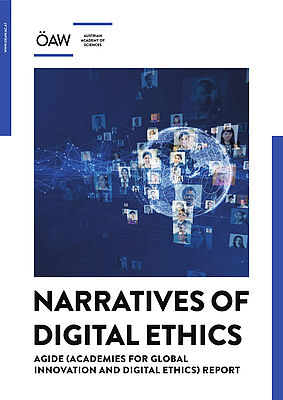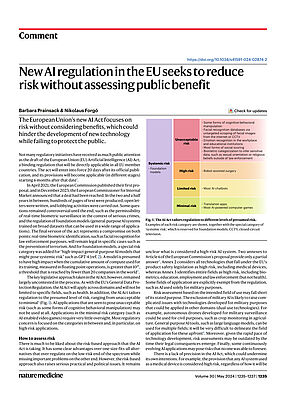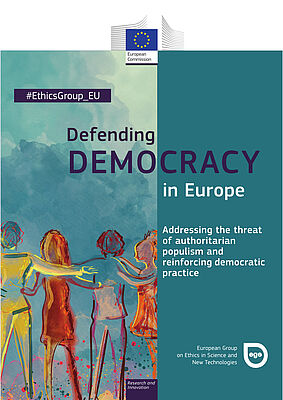
Barbara Prainsack, Dr. phil.
Professor for Comparative Policy Analysis
Universität Wien
Born in 1975 in Klagenfurt, Austria
Studied Political Science at the University of Vienna
Arbeitsvorhaben
Caring States: Solidarity in a Turbulent World
The book that I plan to write at the Wissenschaftskolleg will build upon my and colleagues’ work on solidarity, but expand it in significant ways. It is tentatively titled “Caring states: Solidarity in a turbulent world.”For a Report for the Nuffield Council on Bioethics (NCOB) in 2011, I developed a working definition of solidarity that was intended to strengthen the analytical power of the concept and enhance its value for policy making. Drawing on practice epistemology, I proposed a framework that helps to understand where, why, and how solidaristic practices emerge and how they solidify into social, legal, and other institutions.
In the following years, together with colleagues from various disciplines, I have developed our conceptual approach to solidarity further and used it to think and work through regulatory and social problems in different areas, including data governance, epidemics, and the future of work – all against the backdrop of digital transformations. My book will draw upon insights from these projects, as well as on current work with colleagues on all continents who seek to foreground non-European traditions of solidarity scholarship and practice. Specifically, my monograph will explore what solidarity can do to tackle current transboundary problems such as health crises, climate change, and democratic backsliding. If we understand solidaristic institutions as those that people contribute to according to their abilities and receive support as they need it, can solidarity help us envisage a new welfare state, without the known bureaucratic problems and unintended consequences? Can it help to address the problem of climate change? Can it help to protect people’s rights and interests in the digital era more effectively? Finally, how can public institutions be inclusive beyond current limits of citizenship and other categories of exclusion? Can solidarity help to create “caring states”?
Recommended Reading
Prainsack, Barbara (2017). Personalized Medicine: Empowered Patients in the 21st Century? New York: New York University Press.
Prainsack, Barbara, and Alena Buyx (2017). Solidarity in Biomedicine and Beyond. Cambridge: Cambridge University Press.
Prainsack, Barbara, Seliem El-Sayed, Nikolaus Forgó, Łukasz Szoszkiewicz, and Philipp Baumer (2022). “Data Solidarity: A Blueprint for Governing Health Futures.” The Lancet: Digital Health 4 (11): e773–e774. https://doi.org/10.1016/S2589-7500(22)00189-3.
Kolloquium, 11.06.2024
Was ist Solidarität und warum brauchen wir sie? Von Pandemien und Klimawandel
Bis vor wenigen Jahren schien Solidarität vielen ein veraltetes Konzept zu sein – ein Kampfbegriff aus der Vergangenheit. Während der COVID-19-Pandemie änderte sich dies: Politikerinnen und Repräsentanten aus Wirtschaft und Gesundheit auf der ganzen Welt appellierten an die Solidarität, wenn sie die Menschen aufforderten, Masken zu tragen, sich impfen zu lassen oder auf einander zu achten. Internationale Organisationen und Regierungen behaupteten, Solidarität zu üben, wenn sie Impfstoffe teilten oder Hilfe leisteten. Solidarität wurde zu einem Begriff, der eng mit der Pandemie verknüpft war – sowohl positiv als auch negativ: Während manche Solidarität – gerade in Zeiten multipler Krisen – als notwendige Bedingung für das Funktionieren von Gesellschaften betrachten, sowohl in Form individueller Praktiken als auch in Form solidarischer Institutionen, ist Solidarität für andere ein Instrument der Unterdrückung.
Was ist Solidarität, und warum sollten wir uns um sie kümmern? Dies sind die Fragen, um die es in meinem Kolloquium geht. Mein Vortrag beginnt mit einer Definition von Solidarität und einer Klärung, wie sich Solidarität von anderen Konzepten wie Gerechtigkeit und Fürsorge unterscheidet. Danach erörtere ich, unter welchen Umständen Solidarität problematisch sein kann, und wie „authentische“ Solidarität dazu beitragen kann, die Fähigkeit von Menschen zu erhöhen, sich und anderen zu helfen. Zudem kann eine Analyse von Solidaritätsdynamiken dabei helfen, Politikgestaltung und ihre Ergebnisse zu verbessern. Ich schließe mit einem Beispiel aus meiner gegenwärtigen Forschung, um zu zeigen, wie ein solidaritätsbasierter Blick auf gesellschaftliche Herausforderungen die Formulierung eines (Policy-)Problems verändern kann – und damit auch, wie wir an seine Lösung herangehen.
Publikationen aus der Fellowbibliothek
Prainsack, Barbara (Wien, 2024)
Narratives of digital ethics : AGIDE (academies for global innovation and digital ethics) report
Prainsack, Barbara (Luxemburg, 2024)
Prainsack, Barbara (New York, NY, 2024)
New AI regulation in the EU seeks to reduce risk without assessing public benefit
Prainsack, Barbara (Wien, 2024)
Arbeit - Care - Grundeinkommen kritik & utopie
Prainsack, Barbara (Colchester, 2023)
European Solidarity : interdisciplinary perspectives
Prainsack, Barbara (Wien, 2023)
Wofür wir arbeiten Auf dem Punkt
Prainsack, Barbara (London [u.a.], 2022)
Data solidarity : a blueprint for governing health futures
Prainsack, Barbara (Bristol, 2021)
The pandemic within : policy making for a better world
Prainsack, Barbara (Wien, 2020)
Vom Wert des Menschen : warum wir ein bedingungsloses Grundeinkommen brauchen
Prainsack, Barbara (Thousand Oaks, Calif., 2019)
Logged out : ownership, exclusion and public value in the digital data and information commons
Im Kolleg entstanden 03.07.24
Im Kolleg entstanden 18.03.24
Im Kolleg entstanden 27.02.24
Köpfe und Ideen 2024
„Ich idealisiere Solidarität nicht“
Barbara Prainsack im Interview mit Matthias Pfeffer





